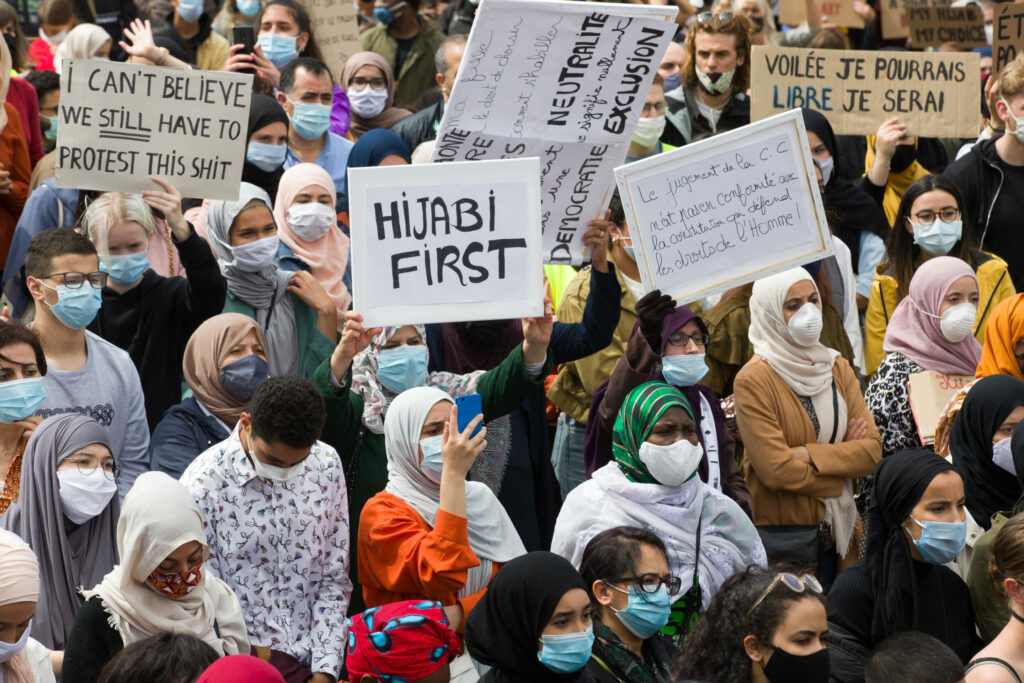The European Court of Human Rights (ECHR) has ruled that it upholds the ban on hijabs in Flemish Community secondary schools. It rejected the applicants' complaint that the ban is incompatible with freedom of religion.
The case was brought by three young Muslim women from Maasmechelen (Limburg province) in November 2020. They argued that they are unable to wear the Islamic headscarf in their secondary schools (except in religious education classes), following the ban in the Flemish Community's official education system on wearing any visible signs of religious beliefs.
The ban in Flemish GO! (community education) schools has been in place since 2013 following a law introduced in 2009. Schools in this particular group must therefore provide 'secular' education.
The young women who took the case to the ECHR argued that the ban on wearing "conspicuous religious symbols during teaching activities introduced at their school violated their right to respect for their private life, their right to freedom to manifest their religion or beliefs, their right to freedom of expression and their right to education."
In its final decision in the case announced on Thursday, the Court in Strasbourg declared the application inadmissible by a majority, thereby ruling against the three women and upholding the Flemish ban.
"The concept of neutrality in the Community's education system understood as prohibiting, in a general manner, the wearing of visible symbols of one's beliefs by a pupil, did not counter Article 9 of the Convention [guaranteeing freedom of religion] and the values underlying it," the Court wrote in a statement.
"The contested ban did not concern solely the Islamic veil, but applied without distinction to all visible symbols of belief," the ruling read. It concluded that the restriction is "proportionate to the aims pursued", namely to ensure that the Flemish Community's education system provides a school environment in which pupils do not wear religious symbols.
End of a long road
This marks the final decision in a series of court cases on the matter. In February 2018, a court in Tongeren ruled on the case brought by 11 girls from two secondary schools in Maasmechelen, including the three girls involved in the ECHR case against Belgium.
It declared that the ban in the school regulations did not apply to the applicants and that the girls were allowed to wear headscarves at their schools. This ruling was based on the European Convention on Human Rights, which obliges European countries to allow citizens to freely practise their religion.
However, the schools' organising authority appealed. Almost two years later, at the end of 2019, the Court of Appeal in Antwerp ruled that a ban on wearing headscarves in the two schools in the municipality of Maasmechelen was justified, overturning the Tongeren court decision. It ruled that the ban on all philosophical and religious symbols was necessary for public education.
"Pupils must be able to develop their personalities in a free environment, so that they can make their own judgements about their identity, including their religious identity, and that of others. The Court believes that the creation of a learning environment free of ideological signs can contribute to this," the ruling read.

